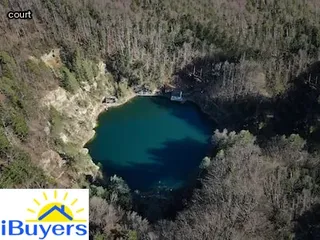Navigating the Nevada probate process for real estate ownership can be complex and daunting. It is important to have a comprehensive understanding of the laws governing probate in order to ensure that all relevant statutes are adhered to correctly.
In Nevada, the Probate Code governs the administration of estates and sets forth the rights and responsibilities of heirs, executors, administrators, trustees, and other parties involved in estate proceedings. The code also provides detailed instructions on how to settle an estate and make distribution of assets.
Additionally, Nevada has put in place various exemptions from probate proceedings depending on whether an asset is considered part of a decedent's estate or not. These exemptions can be complicated but may provide considerable savings both in time and money for those involved in a probate proceeding.
Furthermore, Nevada updated its Probate Code in 2019 with stricter requirements for fiduciaries such as executors and trustees when it comes to filing court documents related to estates. Understanding these new regulations is essential for anyone involved with administering an estate in Nevada.

In order to execute a probate in Nevada, certain requirements must be met. The individual named as executor of the estate must be at least 18 years old and a resident of the state or a qualified out-of-state representative.
Executors must also be competent to manage their own financial affairs. In addition, they must not have been convicted of any criminal offense involving dishonesty or breach of trust, nor have been removed from any prior position as an executor due to misconduct.
It is important for executors to be knowledgeable about the probate process in Nevada, including filing appropriate documents with the court and managing assets until their distribution according to the terms of the will. Furthermore, an executor may need to obtain surety bonds or other forms of security if requested by the court.
Lastly, it is necessary for executors to keep accurate records throughout the process and provide copies of these records upon request by interested parties or the court.
The Nevada probate process can take anywhere from a few months to several years depending on the size and complexity of the estate. In most cases, an executor is appointed by the court to oversee the process.
The initial paperwork must be filed with the court within 30 days of death and a hearing must be held within 90 days. From there, creditors must be notified and claims made against the estate must be paid out before any assets can be distributed.
Depending on how many creditors exist and how complicated their debts are, this part of the probate process can take quite some time. After all claims are settled, all assets are inventoried, appraised and distributed according to the terms of the deceased's will or state law if no will exists.
Lastly, beneficiaries must await confirmation that all taxes have been paid before they receive their inheritance. As you can see, it is important to understand each step of the Nevada probate process so that you can prepare accordingly for your real estate ownership experience.

In Nevada, certain types of assets are exempt from the probate process and can pass to beneficiaries without a traditional will. This includes joint tenancy real estate properties, life insurance payouts, and retirement accounts.
Real estate owned by married couples through community property with right of survivorship is also exempt. Similarly, revocable living trusts that have been established in advance can avoid probate court altogether.
Additionally, any asset with a designated beneficiary such as an IRA or 401(k) account can be passed on outside of the probate process. It’s important to note that most small estates with assets valued under $20,000 may also bypass probate court if the necessary affidavits are filed and accepted by the court.
It’s important for real estate owners in Nevada to understand their options for avoiding probate and ensure that their estates are transferred to the appropriate beneficiaries in a timely manner.
When it comes to uncovering the Nevada probate process for real estate ownership, wills are a key component. Before probate can be initiated, the validity of a will must be determined by the court.
A valid will is one that has been properly drafted, signed, and witnessed in accordance with Nevada state laws. In some cases, individuals may have multiple wills which are considered separately.
It is up to the court to determine if any of these documents are valid and should be carried out according to their contents. There are specific procedures that must be followed in order for a will to be deemed legally valid in a probate court in Nevada.
These include verifying that all necessary information is included in the document and that it was created with proper legal authority. If there is any doubt about the authenticity or accuracy of the will, further investigation may need to occur before it can proceed through probate proceedings.
It is important for those involved in this estate process to understand how wills are evaluated by courts so they can ensure their property transfers as intended when they pass away.

The probate process in Nevada is an important part of settling an estate, as it oversees the transfer of ownership for real estate assets. When a property owner passes away, the state's laws determine how the assets are distributed among heirs or creditors.
The Nevada probate process involves filing a petition with the court and providing details of the deceased's estate. After that, relevant documents must be submitted to the court for approval.
Creditors may also need to be notified during this stage. Following this, appraisals will be conducted and debts paid off from the estate.
An executor will then be appointed to oversee the distribution of assets according to the decedent’s will or Nevada intestacy laws. Finally, the court supervises asset distribution to ensure that all parties receive their rightful share and that all legal requirements have been met before closing out the case.
Understanding these steps is critical when navigating through probate in Nevada and settling an estate in a timely manner.
The executor of a probate estate is an essential role that must be fulfilled in order to properly transfer ownership of real estate in Nevada. The executor’s job is to settle the decedent’s debts, handle all other obligations, and manage the distribution of assets according to the will.
They must be familiar with the probate process or work closely with a qualified attorney who can provide guidance throughout the proceedings. It is important to understand that an executor may be appointed by a court or chosen by the decedent themselves in their last will and testament.
This person is responsible for representing the estate before the court and taking all necessary steps to ensure that it is administered correctly. Once appointed, they are also subject to various duties such as providing notices, paying taxes, and filing reports with the court.
Furthermore, they must handle all communication between parties involved in probate proceedings and provide required documents when needed. Ultimately, understanding the role of an executor during Nevada probate proceedings is critical for real estate owners seeking to uncover what steps need to be taken for successful ownership transfer.

When filing paperwork for Nevada probate real estate ownership, it is important to understand the process and know what documents will be needed. The court requires certain forms to be filled out in order to process the transfer of a deceased person's property.
Typically, this includes a petition that outlines the estate's assets, a copy of the decedent's death certificate, an inventory of all assets and debts, and a sworn statement from the executor or administrator. Depending on the size and complexity of the estate, additional information may also be required.
It is important to provide complete and accurate details when filing paperwork with the court to ensure that the probate process goes as smoothly as possible. Additionally, any affidavits or other supporting documents must be notarized before they can be accepted by the court.
Once all necessary paperwork has been submitted and accepted by the court, they will review it and determine if everything is in order before approving it for processing.
When it comes to uncovering the Nevada probate process for real estate ownership, collecting assets and paying creditors is a critical part of the proceedings. In order to ensure that all outstanding debts are taken care of, heirs must take inventory of all estate assets and liabilities.
This includes not only financial accounts but also tangible items such as real estate, vehicles, jewelry, and furniture. In addition, beneficiaries must also locate any legal documents pertaining to the deceased's will or trusts.
After locating all assets and liabilities, heirs can then calculate what is owed to creditors and proceed with payment. Any remaining funds or property will then be distributed in accordance with the terms of the decedent's will or trust.
It is important to note that the Nevada probate process varies depending on whether the decedent had a will in place prior to their death.

The process of distributing remaining assets to beneficiaries in a Nevada probate case can be complex and time-consuming. It's important for real estate owners to understand the laws and procedures related to asset distribution in order to ensure their heirs receive the appropriate assets.
The first step is that the executor must identify the decedent’s assets, determine their values, and notify creditors and any known claimants of the estate. Once this is done, all debts and taxes must be paid before any assets can be distributed.
After that, Nevada law requires that all remaining assets be distributed according to the terms outlined in the will or if there isn't one then according to state intestacy laws. Beneficiaries may choose to accept distributions of specific assets or receive a lump sum payment for their inheritance; either way, each beneficiary must sign a receipt for their share which should include an itemization of all assets received from the estate.
Finally, before closing out the probate case, court approval is required confirming that all legal requirements have been satisfied.
When it comes to the Nevada probate process for real estate ownership, disputes among beneficiaries or creditors can be a source of confusion and distress. In order to resolve such disputes in a timely fashion, it is important to understand the various legal requirements associated with the probate process.
This includes understanding the role of an executor in managing and distributing assets, as well as how to identify and address any potential conflicts of interest between beneficiaries and/or creditors. Additionally, all parties involved should be aware of their rights and obligations under Nevada law in order to ensure that any dispute resolution is carried out in a fair and equitable manner.
It may also be necessary to seek out experienced legal counsel if there are questions or disagreements related to the probate process or beneficiary/creditor resolutions. With knowledge of these key elements, resolving disputes among beneficiaries or creditors can become less of a burden when dealing with the Nevada probate process for real estate ownership.

Once the Nevada probate process is complete, any inheritance money or assets from the estate must be released to the rightful heirs. Closing the estate involves notifying creditors and other parties with a legitimate interest in the estate, settling outstanding debts, paying taxes, and distributing remaining assets among beneficiaries.
The court will issue an order releasing funds to the executor for distribution, who is responsible for ensuring that all debts are paid before releasing money to beneficiaries. All relevant documents must be filed with the court so that there is a record of all transactions related to the estate.
In some cases, there may also be court-ordered appraisals of specific assets in order to ensure fair division of property among heirs. Once all these steps are completed and approved by the court, inheritance monies can finally be released to those entitled to them according to Nevada law.
Real estate transactions in Nevada are subject to the probate process, where a court must approve the transfer of ownership of a decedent's property. This process can be complex and time-consuming, but understanding it is essential for those seeking to own real estate in Nevada.
In order to access an estate’s assets, an executor must file a petition with the court that states details about the deceased person’s assets and beneficiaries. Probate laws vary from state to state so it is important for owners or potential owners of Nevada real estate to familiarize themselves with the rules and procedures of this process.
Furthermore, it is important to obtain legal advice when navigating the probate process, as certain rules can have implications on how long a property remains under control before being transferred. Without proper guidance, mistakes made during this process can result in costly delays or even invalidation of ownership rights.

For real estate owners in Nevada, it is important to understand the probate process for holding insurance policies on behalf of the estate. When a person passes away, their estate may include assets such as real estate that need to be managed by an executor or court-appointed personal representative.
In order to ensure that these assets are protected, it is often necessary for the executor to obtain an insurance policy on behalf of the deceased’s estate. This will provide financial protection in the event of any damage or losses that occur to the property during probate.
The executor should also review any existing insurance policies that were held prior to the death and make sure they are still valid and up-to-date. It is also essential to understand how state laws apply to the process of obtaining a policy and how it can affect taxes and other financial obligations associated with the property.
By understanding these processes, real estate owners in Nevada can ensure that their estates are legally protected throughout the probate process.
A listing agent has a number of obligations and rights when overseeing an estate transaction in Nevada. The agent must be licensed to work in the state and has a fiduciary duty to the estate owner, meaning they must act in the owner's best interest.
The listing agent must take reasonable steps to market the property, which includes properly pricing it and advertising it in order to get maximum exposure for sale. Furthermore, they must negotiate terms with buyers on behalf of their client, including setting a closing date for the sale.
Additionally, they are responsible for ensuring that all paperwork is completed correctly and that all necessary documents are filed with local authorities. Finally, the listing agent should inform their client of any changes or issues that arise during the estate process so that they can make informed decisions about how to proceed with ownership.

An executor of an estate is typically responsible for a lot of work and often goes unrecognized for their contributions. Seeking compensation for services rendered as an executor is possible, but it is important to understand the Nevada probate process for real estate ownership first.
Executors must make sure all debts on the estate are paid off before any assets can be distributed. The executor must also compile a list of the decedent's assets, notify creditors, and file an inventory with the court.
Furthermore, they must manage assets until they are distributed to rightful heirs and beneficiaries according to the will or state law. In some cases, executors may be entitled to reasonable compensation from an estate's assets, but this varies depending on state law.
To receive compensation as an executor in Nevada, executors should confirm that it has been authorized by either the decedent's will or by a court order issued by the probate court. Executors should keep detailed records of their time spent on tasks related to probating the estate since courts typically base their decision on such records when determining whether or not compensation should be awarded.
If a real estate owner in Nevada dies without leaving behind a will, their assets may still be distributed according to the state's probate process. In this situation, known as intestacy, the court assigns an administrator who is responsible for overseeing the distribution of the deceased's property.
This person can be either someone chosen by the court or a family member of the deceased. To determine who is legally entitled to receive these assets, the court looks at both state and federal laws.
The laws governing intestacy vary from state to state but generally prioritize close relatives such as spouses and children over distant relatives or friends. Depending on how much property the deceased owned, and their relationship to potential heirs, it may take several months or even years before all assets are distributed accordingly.

The court administrator plays an integral role in the Nevada probate process for real estate ownership. The first step is to appoint a personal representative, typically a family member, who will oversee the distribution of assets.
This includes filing the initial petition with the court and gathering all necessary documents such as death certificates and other legal records. The court administrator verifies that these documents are in order before passing them on to the probate judge for final approval.
Once approved, the court administrator is responsible for entering orders that direct the personal representative to transfer title to any real estate involved in the probate process. In some cases, it may be necessary to obtain information from third parties or creditors in order to complete this process.
Ultimately, it is up to the court administrator's discretion to ensure that all procedures are followed correctly and that all assets are properly distributed according to state law.
Many estate owners in Nevada may find themselves overwhelmed by the probate process for real estate ownership. Fortunately, there are a variety of resources available to assist with completing probate responsibilities.
The Nevada Bar Association offers online resources through their website, including information about filing fees and forms to help guide executors through the process. Further, each county court has a probate division that provides additional information regarding local regulations and court proceedings.
Additionally, there are independent agencies and legal advisors who specialize in probate law and can provide advice on navigating complex estate matters. It is important to understand all the necessary paperwork as well as local laws related to property transfers before beginning the probate process in Nevada.
Taking advantage of these helpful resources can help ensure that the estate owner's wishes are carried out efficiently and accurately.

When it comes to understanding the Nevada probate process, real estate owners need to take into consideration all the important factors before finalizing an estate plan. First and foremost, one should be aware of the probate laws that apply in Nevada.
These laws will dictate how assets are distributed after death and who will be responsible for administering the estate. Estate planning experts can help individuals navigate through this complex process, as they understand all applicable laws and requirements.
Additionally, they can provide advice on choosing executors, trustees, or heirs that can be trusted with managing the estate. In order to ensure estate planning is done properly and efficiently, it is also important to make sure that all documentation is up-to-date and accurate.
Documents such as wills, powers of attorney, living trusts and other legal paperwork must be properly drafted and signed in order to ensure that assets are distributed according to wishes upon death. Finally, it is essential that a knowledgeable financial advisor is consulted in order to ensure that any inheritance tax liabilities are minimized or eliminated altogether.
By taking these key considerations into account before finalizing an estate plan, real estate owners in Nevada can rest assured that their assets will be transferred according to their wishes upon their passing.
Yes, you can sell a house in probate in Nevada. The probate process is the legal means of transferring real estate ownership after the death of an owner.
To complete the transfer, it is important to understand how to navigate the Nevada probate process. An experienced attorney can help guide you through the steps required to successfully transfer ownership, including filing paperwork with the court, obtaining court approval of any sales agreement, and providing all necessary documentation for recordation at the county recorder's office.
Additionally, there may be taxes and other costs associated with selling a house in probate in Nevada that must be taken into consideration when making a sale. Working with an experienced lawyer who understands how to uncover and navigate the Nevada probate process will ensure that all aspects of transferring real estate are handled correctly and efficiently.

In Nevada, real estate assets are generally subject to probate. If a real estate owner dies without a will or trust, their estate must go through the probate process in order for the property to be passed on to heirs and beneficiaries.
Depending on the size of the estate, this could involve filing petitions with the court and providing paperwork such as tax returns and other financial documents. In some cases, an executor may need to be appointed to handle legal issues related to the ownership of property.
The executor is typically responsible for determining who will receive which assets, as well as ensuring that any debts owed by the deceased are paid off before distributing any remaining assets. In addition, probate can also involve appraising and selling certain assets in order to pay taxes and other expenses associated with settling the estate.
The probate process in Nevada can be a confusing one for real estate owners. But understanding how much an estate must be worth to require probate is an important factor in determining if you’ll need to go through the process.
In Nevada, estates that are greater than $100,000 must go through the probate process. This includes the fair market value of all assets such as real property and personal property when added together.
An experienced attorney can help you determine what your estate is worth and if it needs to go through the probate process.
In Nevada, the heirs in probate are determined by the terms of the decedent’s last will and testament. If there is no will, then Nevada state law sets forth the order of succession for who is entitled to the estate.
This can become complicated if any of the heirs are minors or incapacitated, or if they cannot be located. Additionally, if there is a surviving spouse, they may have certain rights to the estate even if there is a will in place.
As such, it is important to understand all applicable state laws when uncovering the Nevada probate process for real estate ownership.